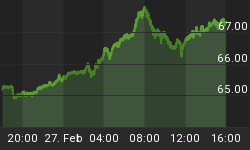This past week, the commander of Thailand's army unexpectedly staged a coup d'état and ousted the government of Prime Minister Thaksin Shinawatra. The military declared itself in control and instituted martial law across the nation.
In addition, there was violence and widespread rioting in Budapest following Hungarian Prime Minister Ferenc Gyurcsany's taped admission that he had misled voters about spending plans and had lied "day and night" to win power ahead of last April's elections.
Reports also surfaced that one of the world's largest hedge funds had lost more than $5 billion -- over half of its assets -- in a matter of days because of a bad bet in natural gas futures, despite the firm's billing as a sophisticated multi-strategy advisor with adequate risk controls.
Meanwhile, Yahoo's shares fell sharply after the technology bellwether lowered earnings guidance for the third quarter and warned that online advertising growth seemed to be slowing in some economically-sensitive categories, including autos and financial services.
And finally, the Federal Reserve Bank of Philadelphia reported a surprising drop -- in fact, the steepest monthly decline since January 2001 -- in its general economic index, giving strong indications that the U.S. is heading for a slowdown.
Taken together, these seemingly unrelated events suggest that there has been an abrupt change in the investment risk equation.
Yet they come at a time when investors have been complacent, as evidenced by the fact that share prices are near multi-year highs, the VIX Index, or "fear gauge," is not far from its 2006 lows, credit spreads are at exuberant extremes, and the economy is widely seen as being in a Goldilocks-like state.
Under the circumstances, an apparent disconnect between expectations and reality can sometimes trigger a dramatic reaction, where equity prices fall, government bonds rise, and funds flow from risky securities, sectors, markets and classes into safer ones -- often in a very disorderly fashion.
One might call this a sudden recognition of risk, where investors learn the hard way about the perils of taking too much for granted.















